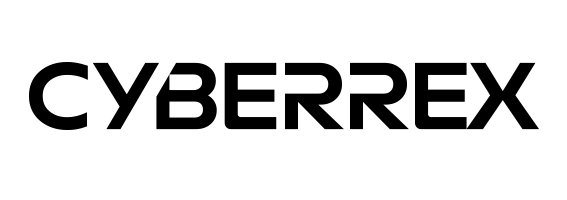16 Sep Finland influencers warned for breaking gambling marketing rules
Finland influencers warned for breaking gambling marketing rules
The intersection of social media and gambling presents both opportunities and challenges within gambling regulations. Understanding the impact of social media on gambling behavior is crucial for policymakers and regulators. The long-term implications for gambling regulations include the need for updated legal frameworks that specifically address VR and AR features. This evolution highlights the necessity for collaboration between technology developers and regulatory bodies to maintain an environment that promotes responsible gambling practices. Another key challenge involves the advertising tactics employed by gambling operators on social media. Many companies utilize influential figures to promote gambling, which can inadvertently target vulnerable populations.
Recognising these challenges and the urgent need to update their laws, the UK Government has announced a review of the Gambling Act 2005 to “ensure gambling laws are fit for the digital age” 4. Overall, an online gambling social media marketing agency specializes in leveraging social media platforms to promote online gambling brands effectively, engage with audiences, and drive business growth. By utilizing strategic planning, creative content, and targeted advertising, these agencies help gambling operators establish a strong presence on social media and achieve their marketing objectives. The social media enable gambling operators to promote products and brand-names with fewer constraints than in traditional forms of media. Many social marketing campaigns aim to generate the equivalent of “word-of-mouth” (56).
- Moreover, Meta’s approval process is increasingly unpredictable, with ads vanishing overnight even when they meet regulatory standards.
- In 2020, Sportsbet was fined AU$135,000 for breaches involving in-play betting ads.
- The integration of social media into gambling activities has transformed how individuals engage with betting and gaming.
- However, Veikkaus still faces restrictions on the type of marketing content it can publish.
- While an outright ban on social media advertising was floated in Ireland in November, the final draft of the bill has watered down those provisions to instead give consumers increased discretion about the advertising content that they encounter.
How can a business stay updated on changes in gambling marketing laws?
Virtual Reality (VR) and Augmented Reality (AR) represent cutting-edge technologies that are reshaping the gambling landscape. By offering immersive experiences, these platforms enhance user engagement and create environments that mimic traditional gaming settings. Players now enjoy the sensation of being in a physical casino from the comfort of their homes. Platforms like Facebook, Instagram, and Twitter allow gambling entities to specifically target demographics such as age, location, and interests. This not only improves conversion rates but also raises concerns regarding responsible advertising, especially concerning younger audiences susceptible to gambling influences. When executed well, these strategies for gambling marketers lead to better reach, higher retention, and fewer compliance headaches.
Even a limited use of social media by gambling operators could have a large impact in terms of promoting gambling products and causing harm. Through the social media, gambling marketing reinforces social norms and over-represents attitudes among fans, followers and their peers (50). The social media are used to portray a “brand personality,” and to foster enthusiasm in their communities (49, 59). Interviews of gambling operators have suggested that the social media are perceived as useful tools to increase website traffic, to raise interest and awareness and ultimately to increase gambling sales (60). Gambling operators are established on the social networks, Facebook and Twitter, collecting an average of 62,084 likes and 30,594 followers across the UK’s top 10 betting sites (61).
RQ2: Why has twitter been an effective space for sports gambling?
These regulations cover various aspects, from the content of advertisements and target audience restrictions to mandatory disclosures of terms and conditions. Advertisers must understand these differences to avoid legal issues and ensure their campaigns are legally compliant. By staying on top of these regulations, online gambling advertisers can run their ads to relevant audiences without facing any legal issues. Many European countries have identified a large increase in gambling participation among underage young people. For example in the United Kingdom, 38% of the 16 to 24-year-olds gambled in 2016 compared to 5% the previous year (85). In other reports, ~60–80% of young people engaged in formal or informal gambling before the legal age (11, 86, 87).
Consequently, the number of betting platforms legally available to consumers has increased. This has led to competition between companies to position themselves and attract customers to a relatively new market (18). Strategies developed by gambling operators on the internet can be included in the larger concept of the strategies of gambling marketing, defined as a management process from concept to customer. The studies found a total of 4,119 gambling messages, consisting of 3,537 television-based gambling references and 582 X/Twitter advertisements. Just over half of the television-based references (50.4%) appeared on the playing surface, while references were visible for 21.7% of the entire duration of broadcasts.
Geotargeting rules – Your ads can’t appear in regions where gambling ads are banned, even if people try to hide their location with proxies or VPNs. Before initiating advertising campaigns, consulting the latest guidelines directly from the platforms is essential. Some factors hold far more influence than others, so in addition to selecting the key criteria, we’ve introduced a weighting system to reflect real-world marketing impact.
Without careful phrasing, disclaimers, or targeting, posts can be throttled or deleted. Because of this, even well-intentioned content can get flagged, demonetized, or shadow-banned. Marketers in this niche must be well-versed in both advertising policy and creative storytelling to succeed. Engineering and nurturing effective social advertising channels long term for regulated markets demands considerable upfront financial commitment to core compliance, as well as the specialized skill sets to navigate ambiguity amid legislative shifts. But dedicating resources towards advanced analytics that crystallize qualified user types removes dependencies on generic demographics vulnerable to overexposure of excluded groups.
Our services include everything you need to run a fully optimized digital marketing campaign. He explained that the issue affected several of the UK’s largest gambling operators, such as Paddy Power, Bet365 and Ladbrokes, which had all registered their offices overseas. “The board considers that through their actions related to commercial co-operation, the influencers have increased the visibility of gambling, gambling websites and companies serving as intermediaries for gambling,” the board said.
In the dynamic gambling industry, staying compliant is crucial to avoid significant penalties and protect brand reputation. Notably, 75% of businesses actively seek legal counsel to ensure they adhere to advertising regulations. This instance highlights the importance of professional legal support in this field. Regional differences in user behavior, advertising regulations, and content policies shape which platforms are the most effective. Below, we dissect the best social media sites for gambling promotion in Europe, the U.S., Latin America, and Asia, supported by data-driven rankings and analysis. This will be a big blow to betting operators who are still using imagery of footballers considered to be of ‘strong’ appeal on their social media posts but many will say this ‘plugging of the gap’ has taken long enough.
As technology continues to evolve, the gambling industry must adapt its regulatory framework. Ensuring compliance with laws designed to protect users is crucial, particularly as social media facilitates unprecedented advertising opportunities. This creates a pressing need for regulators to stay ahead of the developments surrounding the impact of social media on gambling practices. Moreover, many gambling operators utilize social media to provide real-time updates and results, enhancing user experience and engagement. Online casinos and bookmakers often engage with users through promotions and interactive contests on these platforms.
Many organizations also tie up with gambling companies to promote casino games and fantasy sports. Companies contracted for gambling marketing must consider general advertising regulations. For instance, the Federal Communications Commission (FCC) regulates all advertising materials in the US.
This study focused on gambling, a growing public health concern, for which a preventive, therapeutic approach is needed. Twenty articles were selected following PRISMA guidelines among 64 identified initially. The analysis of these articles enabled identification of themes and characteristics of digital gambling marketing.
Staying in your lane, legal-wise, leads to long-term success in the gambling industry. You build brand credibility, helping you avoid legal consequences and reputation damage. All businesses in traditional gambling and iGaming sectors should follow marketing regulations. Meanwhile, TikTok, YouTube, and Twitter/X remain go-to hotspots for betting and game discussions, yet operators still face shadow bans, content suppression, and sudden policy changes. Instead, operators are turning to influencer marketing, interactive content, and private communities to stay visible while avoiding restrictions.
There is also little research on the impact of gambling advertising online, on inducements or on loyalty programs (102). In this review, we found that of the advent of social media advertising substantially increased the volume of gambling ads — roobet with high rates of exposure, not only to adults, but also to children and young persons. Whilst paid-for ads are used to target specific target groups (often with tempting financial incentives), organic ads thrive by being shared across a multitude of user networks. Gambling content marketing has created a cascade of humorous and seemingly harmless posts by gambling accounts along with potentially harmful effects on young people who have not fully developed advertising recognition skills.
More resources need to be dedicated to those who are affected and will likely be affected in the coming years. There is knowledge missing from this area of research because sports gambling in the grand scheme of things is relatively new. It is easy to understand on the surface how promotion of sports gambling can lead to a positive view of it but is more ambiguous when you dive into social media’s role.
This fast-evolving area of gambling has brought new challenges to communities, problem gambling treatment providers, and researchers in the field of addictive disorders. It has designed gambling experiences to stimulate the human senses, by creatively integrating audio-visual technology, such as touch screens, surround sound, augmented reality, haptic actuators etc. (14). This strategy, based on experiential marketing, is very effective in influencing consumers’ behavior, satisfaction, and loyalty (15). Through the creative use of touch, hearing and sight, the digital world has innovated in many ways of controlling and capturing human emotions (16). These evolutions in gambling types and the media used with the development of digital tools has enabled the gambling industry to expand its customer base (17). The legal status of online sports betting has been progressively changed and legalized in Europe since the mid-2000s, leading to a normalization of the practice.

